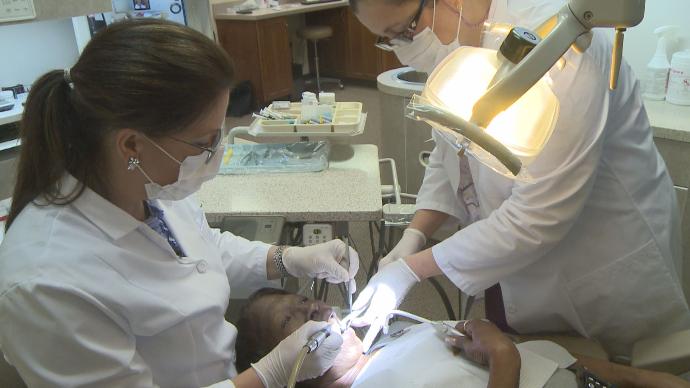Dentists and Patients Say 'Yes' to Free Dental Care for Community Service
The United States' lack of affordable dental care is a serious and visible problem in communities across the nation. The Care Free Pay It Forward program aims to change that, with both patients and dentists responding with a resounding "Yes." Continue below to learn more about the success of the program.

Seven out of nine dentists rated the Care Free Pay It Foward Program a success.
Today, almost 108 million people in the U.S. lack dental insurance. Even with insurance, many people still have difficulty obtaining needed services due to expense and location.
While the need for greater access to more affordable care is already widely known, a new program in Michigan could soon become a template by which dental practices around the country operate.
The Care Free Pay It Forward program, which ran from January 2014 to October 2015, tested a new method that connected patients to desperately needed dental services in exchange for volunteer work. Recent surveys, completed by both participating dentists and volunteers, show the program was effective and of value — nearly 80 percent of those surveyed said they enjoyed the program and would recommend it to friends and family.
RELATED: More Coverage on
- Weekly Tech: Is Ozone Therapy Too Good to Be True?
- Six Key Questions to Ask During Software Demos
- Set Yourself Up For Financial Success After Graduation
The Care Free Pay It Forward program was initially developed as a partnership between the Central District Dental Society of Michigan and Care Free Medical and Dental, a nonprofit organization serving underinsured and uninsured patients in Michigan. To qualify for inclusion in the program, Michigan residents had to demonstrate extraordinary financial hardship, including falling below 250 percent of the national poverty level and an inability to qualify for the state’s Medicaid program.
Once enrolled, the participants took a one-hour oral health education class and donated four hours of volunteer work at one of 80 non-profit organizations. In exchange for completing this preliminary community service, participants received an initial dental examination, X-rays and a cleaning from area dentists who volunteered their time and skills.
During the initial dental exam, volunteer dentists determined appropriate treatment plans for each patient, including estimating the total cost of treatment — based on Medicaid fee schedules — and determining approximately how many volunteer hours would be needed in order to continue treatment.
On average, program participants volunteered 33 hours of community service and received more than $1,150 in dental treatments. The majority of patients received cleanings, dental exams, tooth extractions and simple tooth restorations. However, some dentists chose to provide more extensive dental work, like crowns or bridges, if needed.
Nine dentists responded to the follow-up survey, and of those nine dentists, seven rated the program as a success in all measurable aspects. The two dentists who responded unfavorably did so because they did not find volunteering their time and skills rewarding. They also noted the quality of care provided to patients wasn’t as extensive as it should have been.
Because working adults may find it difficult to find time to devote to volunteer work, a program of this type shouldn’t be viewed as an end-all solution to the country’s affordable dental care problem. However, because of the numbers of respondents who viewed their participation in the program as beneficial, it may be something that is considered as dental practices and organizations around the country look for ways to get care to those in need.
ACTIVA BioACTIVE Bulk Flow Marks Pulpdent’s First Major Product Release in 4 Years
December 12th 2024Next-generation bulk-fill dental restorative raises the standard of care for bulk-fill procedures by providing natural remineralization support, while also overcoming current bulk-fill limitations.